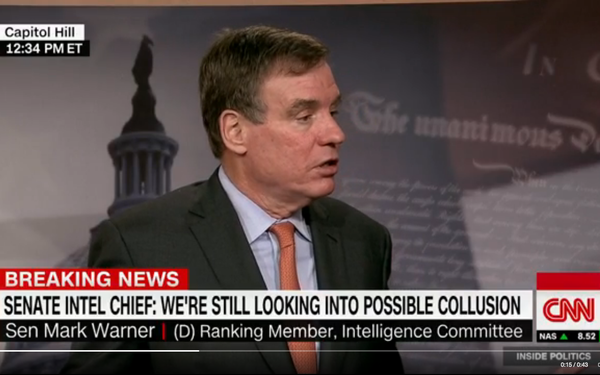
The Senate Intelligence Committee
investigating Russian influence of the U.S. elections, government collusion and ongoing Russian “active measures,” has invited the Big 3 digital/social media platforms -- Facebook, Twitter
and Google -- to provide public testimony during an open hearing on Nov. 1, the committee chairs said during a press briefing Wednesday afternoon.
One of the issues the committee has
been probing is the purchase of ads on social media platforms by Russian operatives, but it would not release the examples provided by Facebook, Twitter and Google.
However, Co-Chair
Mark Warner said the committee is looking into issues surrounding the release of such ads during political campaign races “just like radio, TV or newspapers” allow.
“You can at least get a look at that content" then, Warner said, alluding to traditional media's historical access to political ads.
advertisement
advertisement
Warner added that initially there
was some question about investigating Facebook ads that were “only paid for with rubles,” but implied the investigation is not limited to media buys done via Russian currency.
While the committee does not plan to release the ads shared with them as part of the investigation, Warner said, “At the end of the day, I think it’s important that the public
sees these ads.”
Warner added that as important as the Russian media buys on Facebook are, he believes an "even more problematic" issue was Russia's creation of "false accounts" on
Facebook to drive unwitting users to "false stories" published on Facebook and elsewhere.